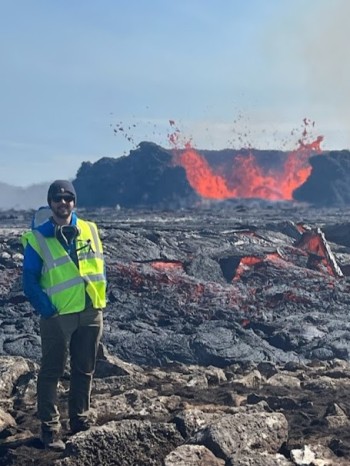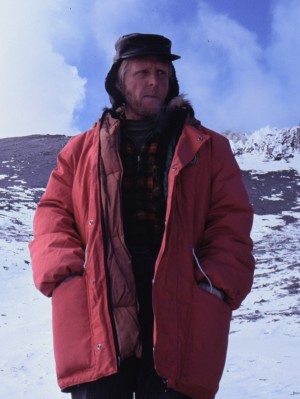 2024 Werner F Giggenbach Prize winner:
2024 Werner F Giggenbach Prize winner:
Shane Rooyakkers
Shane's 2023 paper on the stable isotope geochemistry of the Taupō Volcanic Zone is a benchmark in New Zealand geochemistry with international relevance. Conventional wisdom is that magmas incorporating hydrothermally altered source rocks will exhibit low δ18O values, yet such values are rare globally. However, Rooyakkers et al. (2023) demonstrated that the absence of low δ18O values in the TVZ does not indicate an absence of hydrothermal interaction, but instead shows that TVZ hydrothermally altered crust lacks the isotopic leverage to generate extreme δ18O values. Large-scale magmatic-hydrothermal interactions are likely to be significant in many silicic magmatic provinces globally and are not limited to the sparse occurrences of low-δ18O magmas.
In an earlier paper, results indicated that the Taupō and Ōkataina lavas showed progressive lowering of magma oxygen isotope ratios over successive eruptions, suggesting that their magmatic systems at times overlapped and interacted with overlying hydrothermal systems. These interactions occurred as the magmatic system was rebuilt at shallow crustal levels following large caldera-forming eruptions.
Past Werner F Giggenbach Prize winners
| Year | Recipient |
| 2023 | Raimundo Brahm (Victoria University of Wellington) |
| 2022 | Rose Turnbull (GNS Science) |
| 2021 | Terry Isson (University of Waikato) |
| 2020 | Sophie Gangl (University of Otago) |
| 2019 | Nellie Olsen (Victoria University of Wellington) |
| 2017 | Simon Barker (Auckland University) |
| 2016 | Joanna Druzbicka |
| 2015 | Christian Timm (GNS Science) |
| 2014 | Shaun Barker (Waikato University) |
Werner F Giggenbach

Image credit Antarctica New Zealand
Werner Friedrich Giggenbach was born in Augsberg in Germany in 1937. Following study in Germany and the US he joined the Chemistry Division of DSIR in 1968. Apart from two years spent in Vienna at the International Atomic Energy Agency, Werner remained there and later at IGNS for the remainder of his career.
Werner was an outstanding scientist who became an internationally recognised leader in the field of fluid and related fluid/rock interactions in active geothermal and volcanic systems. He published about 100 refereed papers and chapters in books, of which half are single author contributions in leading geochemistry journals and conference proceedings.
The Geological Society of New Zealand awarded him the prestigious ‘MacKay Hammer’, the New Zealand Institute of Chemistry elected him as a Fellow, as did the US Society of Economic Geologists. He was also an editor or associate editor of several prestigious international journals. His final honour, election to Fellow of the Royal Society of New Zealand, was awarded posthumously in 1997.
